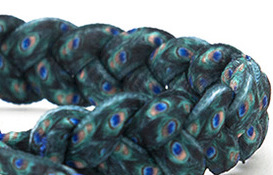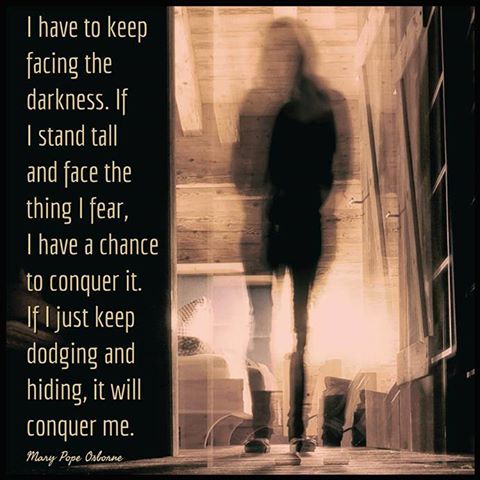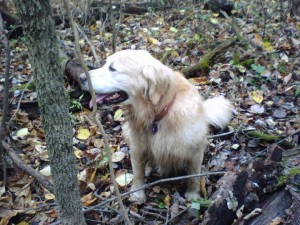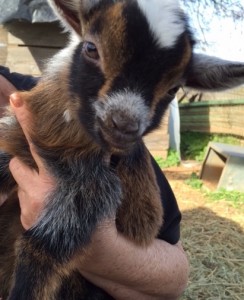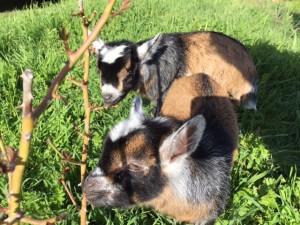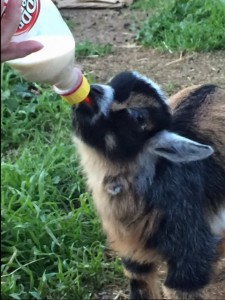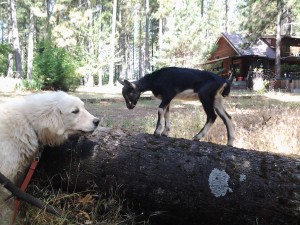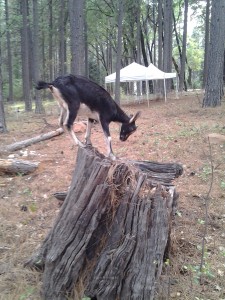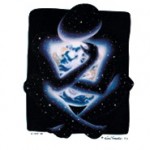The West Coast Eisteddfod Online Poetry Competition
Poets in search of contests might enjoy this news. I learned of The West Coast Eisteddfod Online Poetry Competition from the blog, Publishing…and Other Forms of Insanity. This contest is sponsored by a Welsh journal, The Seventh Quarry, edited by Peter Thabit Jones. This particular poetry contest is is very community minded. Not only does it not charge an entry or reading fee, but it encourages links to applying poets’ blogs, rather than viewing such blogs with the usual disdain.
This blog post is in fact my own entry.
1. Make Soup, You Said, first published in Baltimore Review
2. April in Myth, first published in Antiphon Poetry Magazine
3. Cornbread, first published in The Cafe Review
4. Addah Belle’s Pocket Watch, first published in Bangalore Review
5. Tupelo Coyote, first published in Canary, A Literary Journal of the Environmental Crisis
Make Soup, You Said
I’m making a soup
to fill my bowl.
I’m after that carrot of consolation
you dangle.
I would remember
a recipe
uttered
in that season of my childhood
without language.
The three sisters–
corn, beans and squash…
When they hold hands
they can give weight
while they dance and stir,
balanced in a circle chain,
resolved, complete.
If I know the right herbs,
if my flame is humble,
if I stir with the tide,
if I ladle with steadiness,
if I eat with grace,
if I digest with stillness,
I will understand
why you have gone.
I wrote you a letter.
I burnt it,
buried it,
scattered it,
sent it sailing,
nailed it to my bed.
Make soup, you said, nothing is simple.
April in Myth
April is old like water, prehistoric, recycled. Womb
and bladder. To my Third World parched skin,
she’s America, running the tap.And now, in a foreign
hot tub, she mothers me, as if she has it to spare.
Water and muscles, air and my salty grief.
April has bloomed before, on schedule, sometimes
an early surprise. She has chased and she’s been cupped
to the lips, been drunk in, and done someone’s share
of drinking. Me, too, always in August.
On April’s flesh, tears and kisses evaporate,
leaving shine. On mine, brine, crusty, leaving in cakes
like the ice shelf. I watch it go, with foreboding
that natural disasters will result.
But water and her children won’t be possessed.
In time, she does the possessing, pooling foolish souls
like shrimp, pulling us through hurricanes and extinction
and silence from space.
Mammoths, raccoons, wrens and Americans.
Like water, April is old, knows how to crest and trough,
be a beating organ of the beast, a good germ on the living
planet. Some herons are like pterodactyls pulled by hunger
too far from shore. There are fools and there are fish.
Drink, says April. Extinction breeds myth.
And oh, what a magnetic myth we make.
Cornbread
Cotton takes care of me.
I mend and wonder where
a word went as Cotton hops
out of bed, feeds the herd,
showers. I’m late with his
coffee. I have one job as he
capers around, clipboards
and clients’ keys, leash
and a dog to walk.
My hours pass in turns of
whiplash and molasses.
I’m glad he’s at work,
not watching. We both recall
when I was brilliant.
He soldiers and I try.
Who takes care of Cotton?
He’s aged out of his market.
Once six figures, now Cotton
cleans houses. Five today,
done at six. Home at seven
with rags to wash and stories.
Spreadsheets and payroll.
Menu ideas and shopping lists.
Leash and a dog to walk.
Cotton cares into the void.
Tonight he’ll make cornbread.
Addah Belle’s Pocket Watch
Addah Belle’s pocket watch stands open
on my desk like a sandwich board
advertisement.
I want to shrink down and crawl under it,
camping in my ticking tent. Constellations
and bug spray.
Addah Belle knew me. She could
look at me and tell my future. In her time,
women married.
Addah Belle chose door number two
and taught at a girls’ finishing school,
finishing them off for the altar.
Retirement came abruptly. Bourbon and
ceremonies. The stillness of her room
in the farmhouse. And no Marian.
Two twin beds, like a dormitory, and her
married sister downstairs with grandkids on
long weekends.
I, her grand niece, tracked in
with pocket frogs, too-close best
friends and notebooks. She noticed.
Mom cut my unattended hair short.
Strangers took me for a boy. A boy
with notebooks. Listening to Auntie.
And the pocket watch tent would ticka tick,
flashlights and ghost stories on her desk while
she advised I could be a writer, plan a career.
In her time pocket watches were for men.
That might be how it came to her. Tom,
the last at bat who walked home
lost, wondering why she wouldn’t
marry him, why remaining at school with
Marian was preferable. The watch
forgotten on a wash stand, a library shelf,
a parlor bridge table. Tempus abire tibi est. [It’s time for you to go away.]
The watch she kept and wound, for the sound.
I was a writer when she died. I was a lesbian
when I found her love letters. Her watch,
a flashlight and a tape measure in my drawer.
Tempus vitam regit. [Time rules life.]
Tupelo Coyote
We were tracing Jack’s Creek
where the woods abducts it from the rolling
hills of dairy cows and tobacco.
I on the asphalt, you behind the tupelos.
You stalked me like a fan
afraid to ask for my autograph.
Those alien eyes,
calculating,
measuring my marrow
bend after turn, always
thirty paces aside.
Now you trot out in the farmlands,
legs like tobacco sticks, mapping the median line.
I am roadside, reading.
You are storybook real.
I speak to you, familiar,
as if you are the family dog.
Your answer is a glare-beam
that rips me, rights me.
You put me in the landscape,
that’s all.
Subscribe to this blog's RSS feed
This Author’s Statement on Beauty
Peacock Journal is dedicated to the theme of beauty. It was a challenge to find old poems of mine that study beauty. I’m more of a poet for picking a beautiful object and turning it as much as I have to to find its underside. Then I say, “See, told ya.”
I was so concerned that my submission would not match the theme well that I tried to write a poem about something beautiful without looking for the underside. The result is Emperor of Nimshew, or for my underside fans, At the Lonely Gravel End. Of course, I have extra underside stanzas all planned out. But…
Happily, I recently learned that Peacock Journal accepted Emperor and three of my old poems!
With each group of poems, they also publish an “Author’s Statement on Beauty.” Again, I wondered if I would offend fans of beauty with my curmudgeonly diatribe against rainbows and daisies. After hours of ramblings and takebacks on paper, pacing, and computer drafts, I’m actually pleased with my result. I think I manage to make my point without shaming the positivity set too much:
To me, truth is the deeper beauty. Sometimes I sit in the fire and sometimes I sit in the garden. I am often concerned that friends use soothing concepts like beauty and positivity as hiding places, deflecting shards of reality rather than coping or taking action. We might all seek a hiding place from today’s twenty-four hour news cycle, and the feeling that there’s no cure for the greed, vanity, and brutality displayed there.
Sitting in the fire, I try to be present with life’s ugliness in order to move through it, rather than around it. Then, when I sit in the garden, being present with sensory beauty all around me is an easy, organic process. I never wonder about the purpose of beauty. It just is, like death and traffic and buzzing silence.
For my poetry, I make lists of “shiny things,” the mundane and random details of my days. I populate my poems with these. I adore the beauty in my goat Rye dancing, the fringe of pine needles hanging in my manzanita tree, and a website dedicated to artful, competitive shoelace tying. It’s the micro and the macro, the tiny details drawing my eye to universal truths, that I find beautiful, destructive, and true. At the end of my day, I love beauty, and find reason to look truth in the eye.
National Poetry Month: Two Autumn Skies
 Autumn Sky Poetry Daily is one of several sites that specialize in offering a new poem every day, or nearly so. I like that the editor, Christine Klocek-Lim, follows the poem with an “editor’s note,” a few thoughts on the strengths of the work, what drew her to select that poem out of the pile of submissions. Such comments from an editor are nice for readers and poets. Unlike most publications, Autumn Sky is open to previously published poems. For a poet, this can bring tested work to a larger audience.
Autumn Sky Poetry Daily is one of several sites that specialize in offering a new poem every day, or nearly so. I like that the editor, Christine Klocek-Lim, follows the poem with an “editor’s note,” a few thoughts on the strengths of the work, what drew her to select that poem out of the pile of submissions. Such comments from an editor are nice for readers and poets. Unlike most publications, Autumn Sky is open to previously published poems. For a poet, this can bring tested work to a larger audience.
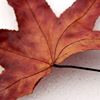 My poem, Random John Fox, appeared on Autumn Sky in November. I wrote the first draft when my friend John was hospitalized with deadly meningitis. But in rewrites years later I avoided the narrative story of John, who survived and recently welcomed his second child. Instead, my goal was to reflect on that time of not knowing–when a critically ill or injured person could turn either way. I portraited the randomness of fate as experienced by those in waiting. What do the specifics of a person’s life mean when a virus, car crash or drone strike can kill? Life means everything to the living and those left behind. And like Make Soup, You Said, my poems often try to make sense when life’s large random elements bring death.
My poem, Random John Fox, appeared on Autumn Sky in November. I wrote the first draft when my friend John was hospitalized with deadly meningitis. But in rewrites years later I avoided the narrative story of John, who survived and recently welcomed his second child. Instead, my goal was to reflect on that time of not knowing–when a critically ill or injured person could turn either way. I portraited the randomness of fate as experienced by those in waiting. What do the specifics of a person’s life mean when a virus, car crash or drone strike can kill? Life means everything to the living and those left behind. And like Make Soup, You Said, my poems often try to make sense when life’s large random elements bring death.
I read that death is the most popular poem topic. I’m not sure if it’s true, but the article I read makes the point that if a writer takes on a universally covered topic like death, they need to bring something surprising and new to the discussion or treat the subject in a dramatically creative new way. I must contribute something in writing about loss and death, because editors do pick my grief poems.
 Broom Zen was first published in Winamop, then appeared in Autumn Sky Poetry Daily in March. I believe it may be included in a special upcoming Green Revolution, a memorial edition to Charles Curtiss, my friend who sweeps his way through his own grief in this poem. He himself died last year. I wrote this early in my time at Heathcote Community. Most of my poetry was written in this wonderful natural, communal setting. Broom Zen was an early effort at rhythm and economy. I was also walking a line with narrative and repetition, trying to find my poetic voice while giving my reader enough information for my intended emotional impact.
Broom Zen was first published in Winamop, then appeared in Autumn Sky Poetry Daily in March. I believe it may be included in a special upcoming Green Revolution, a memorial edition to Charles Curtiss, my friend who sweeps his way through his own grief in this poem. He himself died last year. I wrote this early in my time at Heathcote Community. Most of my poetry was written in this wonderful natural, communal setting. Broom Zen was an early effort at rhythm and economy. I was also walking a line with narrative and repetition, trying to find my poetic voice while giving my reader enough information for my intended emotional impact.
People who know John and Charles pick up on details in the poems that make them joyful portraits of these friends. My hope is that readers can access deeper layers of broader meaning and connect with their own experiences of loss. Thank you, Christine and Autumn Sky Daily for accepting my work!
–WT
National Poetry Month: Five Tuathas in Five:2:One Magazine
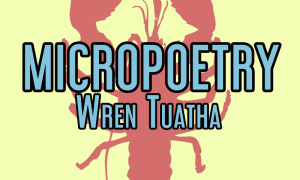 Five:2:One Magazine asked for my batshit crazy submissions. Okay. Early on in my quest to rack up publishing points, I came upon Five2One. Their site has a section for micro poetry, which they apparently define loosely. I was looking for corners where my poems might find a niche. These editors were looking for the wild, reckless, unhinged stuff. My cover letter went like this:
Five:2:One Magazine asked for my batshit crazy submissions. Okay. Early on in my quest to rack up publishing points, I came upon Five2One. Their site has a section for micro poetry, which they apparently define loosely. I was looking for corners where my poems might find a niche. These editors were looking for the wild, reckless, unhinged stuff. My cover letter went like this:
In the spirit of the literary freakshow, I’m flinging the five poems listed below for your consideration. You asked for it; I don’t usually inflict Lobster-Eating Bogeyman on anyone. I didn’t realize micro poetry was a thing or that I was doing it, but here goes! This is a simultaneous submission. I will notify you immediately if any of these poems is accepted elsewhere.
They quickly got back to me, and with a letter that began, “Yo, Wren,” they scooped up all five poems I’d sent. No stuffy dignity here.
When people tell me they don’t understand poetry, I respond that they’re asking the wrong questions. They expect a poem to tell them a story, make them feel fluffy or know the presence of God. Poetry appreciation in schools is very uneven and fades away far too early. I read my poem, Lobster-Eating Bogeyman to such folks and instead of asking what the poem means, I ask them how it makes them feel. There’s no story in LEB, and definitely no fluffy. Universally, people say that it makes them feel disturbed. This is a poem that achieves its goal. I wrote it during/about a mental health episode, a storm of panic and anxiety. My aim was to portrait, even transmit that feeling. The story of what made me feel that way doesn’t matter to my goal, and I don’t remember it anymore. Telling the story would not have had the same visceral effect.
I walk through the world as a queer woman. That’s automatically a fertility issue for me; I always wanted children. Being queer, I had to go to extra lengths to try for parenthood. Added to that impediment, I’ve had uterine fibroids all of my adult life. I walk through the world as a person who wanted children, never had them, and, for most of my life, I taught children. Place me at the barbecue, sitting in circles of parents talking about their children. Endlessly. The difference is Apparent.
I aim to state specifics in my poems. Okay, tree. But what kind of tree? My poems are heavy on concrete images. Yet I want readers to relate, to have a universal human experience. That was a challenge in my poem, Simile, because, honestly, I was writing about my grief at the loss of my pet duck, Lilith. I decided to go with human images in this study of grief. This poem also plays with the concepts of simile and metaphor as ways of describing experiences like grief. Of course, since I was in film school at the time, it wraps with a Hollywood reference.
While Jean Doesn’t Write started out as a playful, private nudge to a friend. First it has science fiction imagery that filled my brain then. But then I turn it to political and personal prods to goad my friend, who was distracted from her writing by a demanding job. Now, years later, who can say which path was best for her. I have my own serious doubts that this poetry thing has any relevance or power to effect change. Anyway, I had to try…
White Paper Poetree is the second poem I tried to write recently, getting back to writing while I struggle with brain fog and other ailments. My process is different, few sweeping inspirations, just hacking fits of stabbing at paper. I guess that’s what got me writing about the paper, and of course, even as I struggle with my own impairments, I get in touch with my privilege. I manage a lot of word play, starting with the title. I use rhythm and line breaks. Think of “flipping ocean waves and seeping petrol” as a parallel to the paper and ink. I comment on the structure of information in our society, how we are shielded from the view of, the knowledge of atrocities like slavery, as we blithely benefit every day. Oh, and, “smacked by atmosphere,” you’re welcome.
I had my break from writing due to illness at a time when I was starting to shift from a lot of navel gazing topics to looking out at the world. I am interested to see if that shift is noticeable as I attempt more new writing.
Thanks for playing along. More coming soon!
–WT
National Poetry Month: Watch Poems, Extinction, etc.
 Issue 82 of Burningword Literary Journal, which includes my poem, The Thud of Escapement, is live on their site and also available for sale in print and digital formats.
Issue 82 of Burningword Literary Journal, which includes my poem, The Thud of Escapement, is live on their site and also available for sale in print and digital formats.
The Thud of Escapement is one of my watch poems. I visited the National Watch and Clock Museum in Columbia, Pennsylvania. I could fill several posts just exploring the interesting collections there. In terms of my poetry, I was inspired by the worlds of gears and precision within the watches and clocks. This became a great image for exploring a conflict I was having at the time. It gave me language, such as the delicious watch word, escapement, to neutralize my hurt of the moment. A common theme in my poetry is to get out of ego and take a larger view, in which one’s personal drama is insignificant to the forces around. I think of this as a repeating micro/macro device in my work. Usually, it compares human upset to the grand scale of nature. This time, it’s the mechanical detachment of watches!
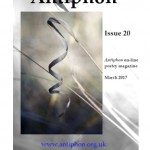 Antiphon Poetry Magazine in the UK published another of my micro/macro poems, April in Myth. As I usually do, I gave my hot tub date a pseudonym for the poem. I like that I call her April but she’s been around too long to embody any flowery stereotype of spring. Contrast her youthful name to the scale of time in the poem, and the theme of extinction. Again, a momentary upset leads me to ponder insignificance in the grandness of time, and even a view of human extinction. There are hints at climate change mixed in with love found and lost.
Antiphon Poetry Magazine in the UK published another of my micro/macro poems, April in Myth. As I usually do, I gave my hot tub date a pseudonym for the poem. I like that I call her April but she’s been around too long to embody any flowery stereotype of spring. Contrast her youthful name to the scale of time in the poem, and the theme of extinction. Again, a momentary upset leads me to ponder insignificance in the grandness of time, and even a view of human extinction. There are hints at climate change mixed in with love found and lost.
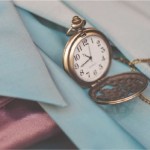 Addah Belle’s Pocket Watch is proof that I’m not a good judge of my writing. I sat on this one for years because I felt it was too narrative. I don’t like much narration in poetry, just as my own preference. Some writers pull it off brilliantly, and it has its place in history. But I dislike it. Finally I posted it in an online critique group to get pointers on where I should start revisions. Readers loved it as is. (On the other side of the coin, I’m likely to be in love with a poem that readers tear to shreds. Not a good judge of my own writing.) The Bangalore Review was the first publication I sent it to and they got back to me the next day, accepting it for publication. Not a good judge…
Addah Belle’s Pocket Watch is proof that I’m not a good judge of my writing. I sat on this one for years because I felt it was too narrative. I don’t like much narration in poetry, just as my own preference. Some writers pull it off brilliantly, and it has its place in history. But I dislike it. Finally I posted it in an online critique group to get pointers on where I should start revisions. Readers loved it as is. (On the other side of the coin, I’m likely to be in love with a poem that readers tear to shreds. Not a good judge of my own writing.) The Bangalore Review was the first publication I sent it to and they got back to me the next day, accepting it for publication. Not a good judge…
Addah Belle, Auntie to me, was my maternal grandmother’s sister. Long after Auntie had died, Granny gave me Auntie’s old pocket watch. Long after Granny died, Mom and I found Auntie’s letters and the story unfolded. Auntie had been my first writing mentor. Yet I had never known her secrets or why she took such an interest in me. My answer to a topic that is narrative is to pick a different medium other than poetry. Along with the poem, I conceived a play about four generations of the women in my family and the secrets they kept. I wrote it to be staged in an old farmhouse that seems to be a giant pocket watch, gears winding in and out like vines.
More another day!
–WT
National Wren’s Poetry Month: A Few Links
![]() Obviously, several of my poems that have been accepted by journals lately are coming live in time for National Poetry Month. I’ll have another herd thundering through in June.
Obviously, several of my poems that have been accepted by journals lately are coming live in time for National Poetry Month. I’ll have another herd thundering through in June.
I want to put in a plug for PoetryCircle.com. It features a “front page,” an online journal that features some wonderful and often funky poetry and prose. I will have a poem featured on the front page soon. PoetryCircle.com is also a community of experienced poets and writers behind the front page, who post poems and other work on a number of different private boards for critique. I get useful feedback here that helps me prepare my poems to succeed in the world of literary journals. That said, no community is for everyone. If you only want positive feedback or if your poems are what we call inspirational verse, you won’t be happy here. There are other internet groups for these. But if you want to have your work published, come and take in what the editors and members have to say. Participate in the PoetryCircle.com community!
 Driftwood Press includes my poem, The Presence of a Witch, in Volume 4, Issue 2, which is just out! The complete collection of words and art is viewable online. You can also preorder a bound copy, which includes full color art on slick paper. Driftwood likes to go deeper into each contribution. Many of the writers and the artist have been interviewed for the journal, including yours truly! I talk about the genesis of the poem there.
Driftwood Press includes my poem, The Presence of a Witch, in Volume 4, Issue 2, which is just out! The complete collection of words and art is viewable online. You can also preorder a bound copy, which includes full color art on slick paper. Driftwood likes to go deeper into each contribution. Many of the writers and the artist have been interviewed for the journal, including yours truly! I talk about the genesis of the poem there.
The online journal Halfway Down the Stairs features my poem, Old Shelby, in its current Homeward-themed issue. Old Shelby is one of my short poems that has a lot going on–juxtaposition of the old couple with the young couple, snakes, apples and many Garden of Eden images contrasted with the ice storm, a climate change commentary. It implies the march of generations and our mobile society. All the while, it portraits an old craggy rural character I met in the Ozarks.
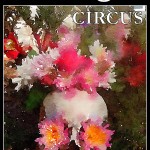 In the current issue of Midnight Circus, I have the perfect matching of a poem to a themed journal. This spring themed edition has an introduction that starts, “I don’t like springtime. There, I’ve said it…” These editors were definitely not seeking inspirational verse for their seasonal theme. So the volume leads off with my poem, Thistle and Brilliant, that ends in the line, “Muppets are such liars.” The online version is not live on their site yet, so keep watch. In the meantime, the print version is on Amazon (sorry, abused Amazon workers) and well worth the modest price. Thistle and Brilliant is another example of my allegorical style, in which I write about a thistle and the temptation to touch something that seems soft but isn’t. More broadly, I’m commenting that we humans never learn, always fall in that same old hole. Then I blame muppets.
In the current issue of Midnight Circus, I have the perfect matching of a poem to a themed journal. This spring themed edition has an introduction that starts, “I don’t like springtime. There, I’ve said it…” These editors were definitely not seeking inspirational verse for their seasonal theme. So the volume leads off with my poem, Thistle and Brilliant, that ends in the line, “Muppets are such liars.” The online version is not live on their site yet, so keep watch. In the meantime, the print version is on Amazon (sorry, abused Amazon workers) and well worth the modest price. Thistle and Brilliant is another example of my allegorical style, in which I write about a thistle and the temptation to touch something that seems soft but isn’t. More broadly, I’m commenting that we humans never learn, always fall in that same old hole. Then I blame muppets.
More to come! –WT
National Poetry Month: Make Soup, You Said
Previously published in The Baltimore Review and the poetry anthology Blood and Tears. Upcoming in Avatar Review.
Make Soup, You Said
 I’m making a soup
I’m making a soup
to fill my bowl.
I’m after that carrot of consolation
you dangle.
I would remember
a recipe
uttered
in that season of my childhood
without language.
The three sisters–
corn, beans and squash…
When they hold hands
they can give weight
while they dance and stir,
balanced in a circle chain,
resolved, complete.
 If I know the right herbs,
If I know the right herbs,
if my flame is humble,
if I stir with the tide,
if I ladle with steadiness,
if I eat with grace,
if I digest with stillness,
I will understand
why you have gone.
I wrote you a letter.
I burnt it,
buried it,
scattered it,
sent it sailing,
nailed it to my bed.
Make soup, you said, nothing is simple.
–Wren Tuatha
Join our Hippie Chick Diaries fanpage on facebook!
About Make Soup, You Said: Some experiences just can’t be tied up with a bow. I wrote this poem in my process of trying to make sense of the death of my biological father. He had been gone since I was three. As an adult, I learned that he had died several years before after a life of homelessness. Realizing that I needed to nurture myself and that the situation had many ingredients, soup was the perfect metaphor. I intentionally avoided telling his or my story narratively. Instead I preferred to keep the poem general, like a love song on the radio, so the reader can apply it to their loss, their absent person. Nothing is simple. –WT
Editor’s Note: This post will be closed beginning in June, when Make Soup, You Said will appear in Avatar Review.
44 Poems and a Reason to Live
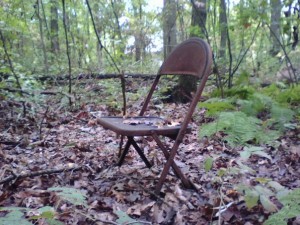 Last summer I needed meaning. My health has been poor for years and my partner and I stress over bills until we pause from exhaustion. Other than baby goat antics we have little to make us smile. Last summer, I decided to distract myself and hopefully build my ego up a bit by submitting some of my old poems to literary journals. I thought I’d improve my publishing resume so I might get a contract for a full length volume of my poems. This was an old goal of mine that had gotten lost in the drama of leaving community, Occupy touring and rv living.
Last summer I needed meaning. My health has been poor for years and my partner and I stress over bills until we pause from exhaustion. Other than baby goat antics we have little to make us smile. Last summer, I decided to distract myself and hopefully build my ego up a bit by submitting some of my old poems to literary journals. I thought I’d improve my publishing resume so I might get a contract for a full length volume of my poems. This was an old goal of mine that had gotten lost in the drama of leaving community, Occupy touring and rv living.
When I booted up my retired computer to find old forgotten drafts, my poetry had already appeared in print eleven times. Nothing very prestigious, but I had backed away from submitting because it felt like I had proven I could do it. I moved on to other priorities in life–teaching at Heathcote, running my jewelry/fair trade business, learning ZEGG Forum facilitation, exploring intimate relationships. I continued to write poetry but I rarely showed up at open mics anymore. My publishing was limited to the kitchen bulletin board in the Heathcote mill. I assumed I’d come out with that book some day.
About six years ago, my health issues shifted from recurring to permanent. And a new set of symptoms was added to my aches, pains and stiffness. I started to have trouble thinking and processing words and information. My usual process for writing poetry was gone.
So when I started collecting old poems, in various stages of completion, I hadn’t written anything new in years and I assumed this was a complete collection, that I would never write poetry again.
I was taking stock of my life. What had I contributed? Is the world any better because I’ve been in it? If I die soon, what will my life have meant? Legacy. I was looking for my legacy. Yes, there are people who would gather in some room and trade stories of my friendship and earnestness. Let’s admit it; It doesn’t distinguish me much to add my name to the list of people with good intentions.
Since I had written a big pile of poems, I decided to put them out there, to take up my own space. My life was and is extremely bleak. I can’t work and I don’t know if I ever will again. I’m gearing up for possibly my seventh (and most complicated) surgery in a year. Some days, I bleed so heavily it’s not practical to leave the house. I stumble and fall about three times a week. Writing a post like this takes days, even weeks, chipping away during hours when words behave themselves. So as acceptances have come in, my spirits are lifted. Editors are honoring the writer I was. I am thrilled and inspired!
Recently I got an email from The Cafe Review. They were accepting my “pet” poem, Folding Chair, for publication in their next issue. This is the best win yet on several levels. The Cafe Review is a highly regarded publication. I’m honored to be included.
Folding Chair is a personal favorite of mine, not for its subject, but because of the craft I put into it. It’s also been my most controversial poem, not in content, but in structure. Readers love this poem but they fall into two camps: 1) those who want me to ditch the very jarring beginning, and 2) those who beg me not to change a thing. I was corresponding with an editor from another journal about changing the beginning. She was in the first camp and after submitting Folding Chair about fifty times, I was starting to listen to that camp. But when I got the news that a review was excited to publish my original vision of Folding Chair, well, there was dancing and singing. My seven pets and I danced and sang. I can’t imagine what the neighbors thought, but I assume we finished before they got any of it on video.
But The Cafe Review wasn’t finished lifting my spirits. They were also pleased to publish a piece of mine called Cornbread, one of my new attempts. These two bring me up to forty-four poems published, lifetime.
I am back!
Heathcote Cabin Road in Fall
Organizing some old writings, I came upon this from eighteen or twenty years ago. Heathcote Community, Maryland:
A walk will clear my mind, align my north and south poles with some psychic axis. Just to lay foot to gravel is to become a child walking safely down the hallway in my mother’s house. As I watch my dog soaking in stimulations, her day speeds up as mine winds down.
I fold down, despite my back, to the various nuts and acorns on the gravel road. I begin a pocketful for the goat. She likes the acorns, before their hats call off. But it’s late in their season and most lie bald, fallen soldiers in random clusters, sleeping silent and just among a roughly equal number of empty acorn hats. Car tires have cracked the bulk of them.
But here in the gravel, among the ones splintered like baby beer barrels, are the survivors, full with the audacity of a late October warm spell. Here, in the road, dozens of acorns are sprouting. Haven’t they heard the one about the seeds in the road versus the seeds in fertile ground? Are they fooled, or am I, into believing a human account? They sprout in might twists, the colors of lime rinds and Thanksgiving cranberries. They lie there, swimming in magical Maryland mica, The gorgeous glitter that penetrates the soil, the stones and my shoes. As I stoop in the road wearing Dorothy’s ruby slippers, how could I doubt that this is a place of endless possibilities?
Happy Halloween,
Wren Tuatha
A Baby Goat Makes Many Things Better
I’m often taken aback when someone asks me why I have goats. My usual response is to ask why they don’t. This doesn’t get them any closer to understanding the attraction, but do they ask parents why they have children? Children are lots of work, they’re loud and messy, they destroy things, disobey, they eat their weight in stuff that does them little good, they scoff at your authority. Yep. Goats are children and children are goats. Now do you see why it’s a silly question? When you love your children, every challenge and trauma is worth it. You’re in it for the long haul, and even though you have moments of questioning your place in this universe, you wouldn’t trade your kids, human or caprine, for anything.
And so, in these tough times, I am an expectant mother again. I have put a deposit down on a little buckling, Levi, who will come to his forever home in about a month. He will be companion to Ponder, my young doe who has been an only goat all winter.
This is not the greatest time to add another hungry mouth to our household, which makes it a great time for some baby goat therapy! As we grow our eco-friendly cleaning business, my partner C.T. and I are stressed about money to the point of bleeding out of our hair follicles. The business is growing wonderfully, but not fast enough for our parade of bills. Knowing that we needed to get a companion for Ponder (goats are herd animals and don’t thrive in isolation) I scoured my DVD collection and sold a bagfull to the local thrift store. I put some of my collectibles on Craigslist and started to fundraise to pay bills and to fund a baby goat.
The baby goat therapy began when we visited a herd where some newly weaned bucklings were available for adoption. C.T. had recently had minor surgery and we were visiting these goats on our way to a follow up doctor’s appointment. The available bucklings were nice but I fell in love with twin bottle babies, a male and female, whose mother had died a week after birth. The male was available for adoption after weaning. So a week later I returned and put down a deposit. He is half Pygmy and half Nigerian Dwarf, with interesting Nigerian coloring. Since the gray agouti coloring on the front half of his body makes it look like he’s wearing a denim jacket, I decided to name him Levi.
I am also waiting for a medical procedure so I arranged that the breeder would continue to bottle feed Levi with his twin sister until after my recovery, in a month or so. In the meantime, the baby goat therapy continues as the breeder sends us camera phone pictures of our little Levi.
But aren’t we crazy to spend money on yet another animal when we’re behind? Yes. And…Our existing herd members, solo goat Ponder and two Livestock Guard Dogs Dana and Tonka, are restless and acting out because there are no other goats. Their diminished quality of life is stressing them and adding to our stress. It’s always an option to decide not to have the herd anymore, to rehome everyone. But goats are children, as are dogs, for that matter. So today is not the day for that choice. Therefore, baby goat.
The actual purchase of a goat is not much. They range from free to $50 to $500. Since Levi was bought with traded DVD’s, well, that’s kind of free. Goats can cost a few dollars a month in feed and hay. They eat much less than a horse or a cow, being smaller. But like a horse or cow, a goat can also eat the nature all around your property, and that can lessen feed costs. When I lived in Maryland, I only fed my goats when snow was on the ground. Otherwise, they ate the woods where we lived.
Vet bills can run high. But like most livestock owners, we have a shelf of medical texts and have learned to do much medical care ourselves. We also have a certain medical credit card (I won’t give them free advertising here) and in emergencies we can charge a vet bill and have a year or more to pay, interest free.
So now I’m planning how to introduce a tiny goat to our very large animals. I’ll have a nursery pen inside the larger pen, letting everyone smell and explore each other through a fence. Then one animal at a time will visit with Levi in the nursery–Ponder, Dana, Tonka and Cricket our inside dog. During the first few nights, I might have Levi in a play pen inside the house. He’s quite a McNugget for the local predators, and I want to be secure in his relationship with all herd members before I leave him out at night.
His breeder keeps Levi and his sister in a small pen with some pregnant does. So he’s already getting used to be hazed and butted by larger goats. But They’re all dwarf breeds. Ponder is larger and very keen on hierarchy. When we had her with other goats before, she was the smallest and was bullied mercilessly. She’s ready to dominate someone! Hence the slow introductions…
I know all the animals are going to be excited about a new herd member. And C.T. and I will get to enjoy a bouncing, dancing baby goat. Despite the nominal cost and financial risk, everyone’s lives will be better.
—WT
